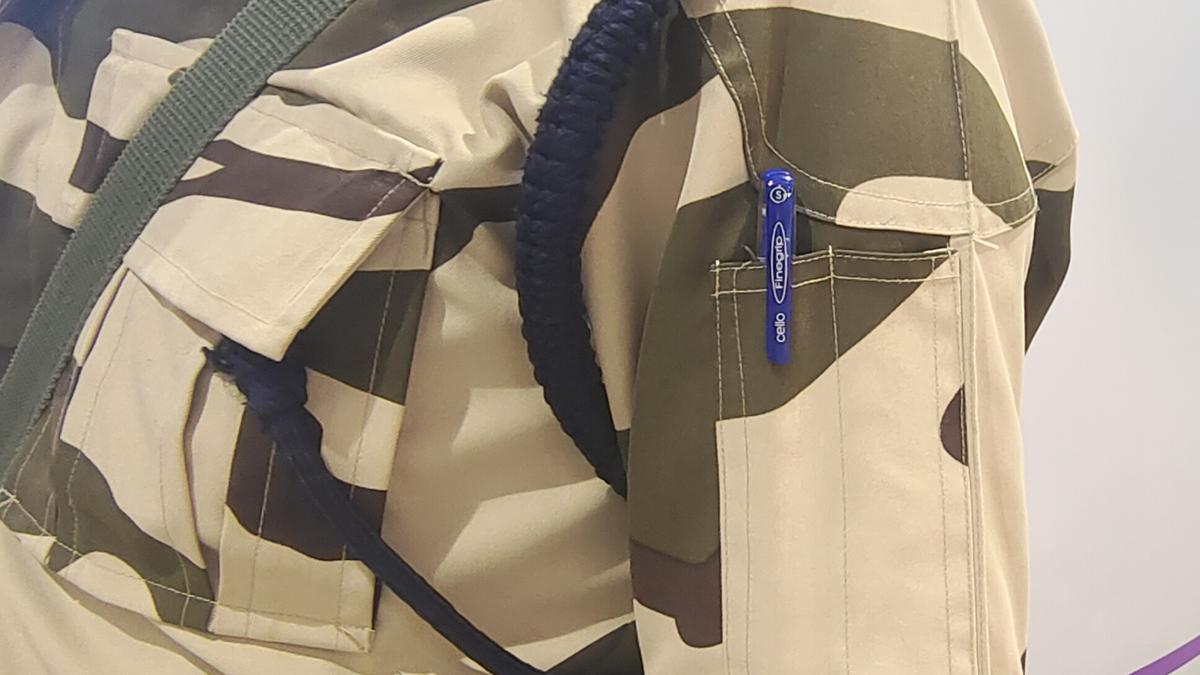
Walkie-talkies of CISF at Mangaluru International Airport become thing of the past
The Hindu
The familiar crackle of walkie-talkies used by the aviation security group (ASG) of the Central Industrial Security Force (CISF) at Mangaluru International Airport is now a thing of the past.
The familiar crackle of walkie-talkies used by the aviation security group (ASG) of the Central Industrial Security Force (CISF) at Mangaluru International Airport is now a thing of the past.
The ASG personnel are now, from July, reporting for duty with their new state-of-the-art communication kits provided by the airport. This keeps the entire communication with the security operations control centre (SOCC), manned by CISF, strictly on a need-to-know basis.
The communication kits, connected to their respective walkie-talkies fit snugly inside the ear of the ASG personnel. This ensures that all communication between SOCC and the on-field personnel is one a one-to-one and within the force basis.
This advancement also frees the hands of the personnel which hitherto was holding the walkie-talkie, giving them the advantage to use their hands to wield the weapon in an emergency, a release from the airport said on Monday.
Virendra Mohan Joshi, Senior Commandant and Chief Airport Security Officer, said the communication kits ensure that the wireless communication reaches to only those for whom it is intended.
“The airport has multiple stakeholders. Security related communication is not meant for all,” Mr. Joshi said.
“The hands-free communication kits will also add to the operational readiness of the ASG personnel,” he added.

“Writing, in general, is a very solitary process,” says Yauvanika Chopra, Associate Director at The New India Foundation (NIF), which, earlier this year, announced the 12th edition of its NIF Book Fellowships for research and scholarship about Indian history after Independence. While authors, in general, are built for it, it can still get very lonely, says Chopra, pointing out that the fellowship’s community support is as valuable as the monetary benefits it offers. “There is a solid community of NIF fellows, trustees, language experts, jury members, all of whom are incredibly competent,” she says. “They really help make authors feel supported from manuscript to publication, so you never feel like you’re struggling through isolation.”

Several principals of government and private schools in Delhi on Tuesday said the Directorate of Education (DoE) circular from a day earlier, directing schools to conduct classes in ‘hybrid’ mode, had caused confusion regarding day-to-day operations as they did not know how many students would return to school from Wednesday and how would teachers instruct in two modes — online and in person — at once. The DoE circular on Monday had also stated that the option to “exercise online mode of education, wherever available, shall vest with the students and their guardians”. Several schoolteachers also expressed confusion regarding the DoE order. A government schoolteacher said he was unsure of how to cope with the resumption of physical classes, given that the order directing government offices to ensure that 50% of the employees work from home is still in place. On Monday, the Commission for Air Quality Management in the National Capital Region and Adjoining Areas (CAQM) had, on the orders of the Supreme Court, directed schools in Delhi-NCR to shift classes to the hybrid mode, following which the DoE had issued the circular. The court had urged the Centre’s pollution watchdog to consider restarting physical classes due to many students missing out on the mid-day meals and lacking the necessary means to attend classes online. The CAQM had, on November 20, asked schools in Delhi-NCR to shift to the online mode of teaching.









